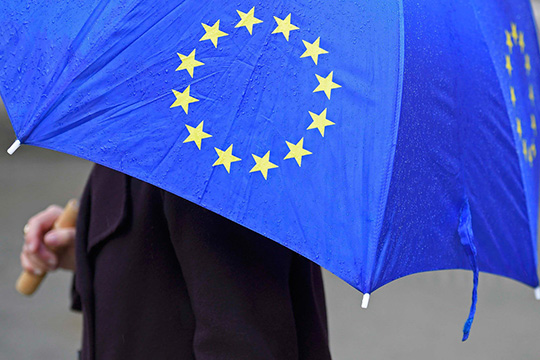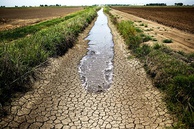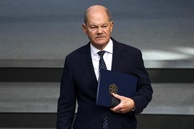According to European media reports, many EU residents continue to perceive the governing bodies of the 28-member bloc, including of the European Commission (EC), as being unable to "leave behind the image of a detached bureaucratic system." This negative perception was further boosted by the recent elections, which left the European Parliament bitterly "split." The formation of the new makeup of the European Commission was equally tortuous, in large part "due to the mismatch of political views." The confusion reached its climax after France, Romania and Hungary had their candidates for European commissioners rejected, formally on the grounds of “a conflict of interest and misuse of public funds." [i] As a result, the new-look European Commission will hardly be able to get down to work before December 1, instead of November 1, as originally planned.
The European Union is facing a mounting wave of problems and challenges, is increasingly divided and unable to solve them. From the outside, China and the United States are ramping up pressure on Europe, which feels the objective need to restore a constructive dialogue with Russia. From within, the basic foundations of European unity continue to be attacked by "populists and supporters of authoritarianism." Even countries that formally embrace liberal values, including Germany, France, Spain and the Baltic countries, disagree about the future of the European project. Brexit, the collapse of the coalition government in Italy in August, the far-right Alternative for Germany party finishing in third place in parliamentary elections in Germany reflect the underlying desire by some governing parties and many of their voters to change the rules and institutions of the EU. [ii]
Moreover, there is a dividing line separating the European north and south economically, and a humanitarian, environmental and ideological one running between east and west. Coupled with the ever-growing signs of US hostility, all these challenges objectively pose existential questions to the European establishment about the future of the continent. What course will the EU have to take? Will the "narrow limited view" of the Central and East European countries pare down the ideas of the "pan-European house" to just a set of beautiful slogans, and bring real politics down to the level of "tactical pragmatism," pandering to the voters’ moods? Or maybe the idea of a "Europe of Nations" will prevail, and the EU will be transformed into a Confederation of independent states, united by a common free-trade zone and "several more supranational functions"? And what kind of a role will the EU be able to play in global politics? Will it achieve strategic autonomy as part of the increasingly amorphous “Western” homogeneity, while preserving its civilizational homogeneity? Or will it have to solve the gargantuan task of creating a full-fledged "power center," interacting with the rest of the world mainly, if not exclusively, on the principles of "Realpolitik"?
This presents a number of more practical questions, which the Europeans are either unable to answer or just don’t want to hear. Who will venture to bear the difficult and controversial burden of EU leadership? After the UK has left the Union, as it is most likely to do, Germany and France can objectively claim the role of leader (rather a collective one though). [iii]
Overall, Berlin and Paris take a shared view of the concept of the EU moving towards greater federalization. This strategy is primarily aimed at preserving the EU single market and could eventually become instrumental in implementing political decisions. For example, the summer election of a candidate for the head of the European Commission demonstrated a break from the decades-old procedure, turning into a sort of backroom bargaining between the Union’s leading members.
Now that Britain is highly likely to leave the EU, this is apparently giving France and Germany a chance to agree on the distribution of their roles as EU leaders. However, the Franco-German “tandem” is getting increasingly divided. Right now, Paris and Berlin are at odds over giving London a new Brexit delay. Besides, France is holding out for a European army as a real fighting force that could be put to use without any consensual decision by all EU members. Germany, for its part, sees it as a more amorphous structure focused on a coordination of efforts. France favors further integration within the Eurozone, while Germany fears the prospect of continuing to bear the brunt of Europe's financial and economic woes. Berlin may also regard Paris' recent bid to regain its role as a global power as a desire to gain additional geopolitical leverage within Europe. Germany, in turn, is torn between mounting domestic policy problems and the need to demonstrate a firm response to new external challenges. At the same time, any abrupt moves by Berlin will almost inevitably revive the Europeans’ historical fears of "German instincts."
The misbalance of geopolitical forces in Europe has for centuries been a primary cause of continental and global conflicts. According to Anglo-Saxon experts, the German superiority over other European states has been a leading destabilizing factor of the past 150 years, and this is something many in Germany conditionally agree with: “Neither the UK nor France is able to exert pressure on Germany when it comes to laying out the course for the EU." Only the United States has the necessary political and economic leverage to do so. [iv]
This is exactly why many “small” European countries have traditionally sought closest possible geopolitical ties with the United States, even to the detriment of the pan-European agenda [v], and even outside the formal mechanisms of NATO, in a thinly veiled hint about the desirability of "containing” not only Russia but Germany as well. By extension, London was seen by them as another counterweight, not only to Germany but also to France. Is there any EU structure, either current or hypothetical, capable of providing its members with "political protection against each other," commensurate with the US one? And who will continue to play the role of the "British counterweight”? Besides, the Eastern European states will hardly embrace the real purpose of the EU reform model, advocated by the leading "old" members of the club with an eye to minimizing the Central and East European member states’ ability to play on the contradictions of world powers.
Finally, the idea of delegating new powers to supranational institutions has always stoked heated debates within the EU. During the past 20-25 years, "EU pressure" has been increasingly rejected by many political forces not only in some Central and East European countries, but also in Austria and Italy [vi], which have seen this as an attempt to restrict their sovereignty. [vii] By the way, it was exactly under this pretext that the United Kingdom decided to leave the Union. As a result, the conflict "with the nationalist leaders of Central Europe, led by Poland and Hungary" [viii], calls into question the very existence of the EU in the foreseeable future.
Even though the “populist” wave had somehow declined by this fall, as forecasts about the European Parliament falling under the “sovereignists”’ control never materialized and the "populists" left the government in Italy and lost some of the electoral base in Austria, Eurosceptics in Poland have only strengthened their position following national elections. Moreover, "nationalists" ended in second place in regional elections held in two eastern German provinces in September, and Sebastian Kurz, the most likely candidate for Austrian chancellor, makes no secret of his desire to limit the European Union's sway. Here he is certain to enjoy the backing of some of his colleagues in the Central and East European countries, who are equally unhappy about Brussels’ attempts to call all the shots in the Union. Thus, the growing friction within the EU is more than just a "rise in nationalist sentiment." The EU is still teetering precariously on the brink of actually moving to a “two-speed Europe,” all the more so now that many "nationalists" and "Eurosceptics" are gravitating towards the idea of a “deep internal transformation” of the EU instead of destroying it altogether, which many of their voters were so wary of.
Fully aware of the impending danger, France and Germany have pitched their own EU reform plans to the Europeans. Emmanuel Macron's triumphant victory over the "nationalists" at home, coupled with Angela Merkel's announcement that she would stand down before 2021, almost immediately made the new French president the biggest hope of EU reform supporters. In spring 2019, Macron responded to the growing popularity of sovereignty ideas and increased external pressure on the EU by embarking on a course towards a “sovereign Europe.” He is talking about the need for Europe to play a new role and "strengthen" its position in the new balance of power currently emerging in the world. Macron is also talking about the need for the EU to "guarantee its own security." These are just some of the several dozen different initiatives that the French leader has proposed to the EU in order to move towards “European sovereignty” and deepen democracy and trust. [ix] Critics fear, however, that Macron's geopolitical ambitions could further deepen the internal divisions within the European Union.
In August, German Foreign Minister Heiko Maas backed the idea of creating, in the wake of the British departure from the EU, a “quintet” of leading nations that would include Germany, France, Italy, Spain and Poland. According to Maas, these five nations could be "directly involved in the administration of the European Union." [x] While admitting the objective difficulties on the way of creating such a group, Maas still expressed confidence that the differences in the political priorities of the current leaders of Italy and Poland should not be allowed to prevent the delegation to these countries of greater responsibility for the future of Europe.
According to The Economist, in addition to Germany, France and Spain, the EU's "top five" could also include the Netherlands and Austria. Along with Italy and Greece, Spain has good ties with the Franco-German "tandem." The Netherlands, while maintaining a constructive relationship with Paris and Berlin, has simultaneously strengthened its position in the EU by spearheading an informal coalition against continued fiscal centralization within the Union, so actively advocated by Emmanuel Macron and Spanish Prime Minister Pedro Sánchez. This has brought The Hague closer to the Scandinavian and Baltic countries. Finally, Austria has in recent years been a key participant in the debate on migration, and has proved itself as a successful moderator of discussions on issues dividing the EU’s liberal west and conservative east. This past spring, the three countries, the "political heritage of the Habsburgs" of sorts, put together a broad coalition within the EU to outline the bloc’s environmental strategy until 2050, and even managed to bring an initially skeptical Germany over to their side.
It is believed that when fully implemented, the course towards the creation of a European army could be also conducive to greater integration and the streamlining of roles within the EU. In early 2019, Paris and Berlin signed the Aachen Agreement, which, among other things, significantly expands the sphere of their military-strategic cooperation. By bringing Italy on board, the three leading EU powers could provide Europe with basic weapons as well. "The Germans build tanks, the French build planes and the Italians build ships." And still, a political decision remains far from being taken." [xi] Some analysts believe that the election of a German candidate to the head of the European Commission could give an additional boost to the idea of giving Europe at least a certain degree of autonomy within NATO. However, during her stint as German defense minister, Ursula von der Leyen always welcomed bigger US military presence in Europe.
The strategy of a new expansion has until very recently been another working option for the EU to "regain self-confidence." In February 2018, Brussels announced a plan for at least some of the six West Balkan states to join the bloc before 2025. According to Brussels, the admission of new members should convince the rest of the need to waive privileges for individual countries, while delegating more powers to the "center." The idea is to have majority decisions, instead of consensual ones, develop mechanisms for monitoring compliance by member countries and punishing offenders. The ultimate goal is to have "supranational institutions that will gradually take away key functions from the less competent national governments." [xii] However, during the last EU summit, France, the Netherlands and Denmark opposed the start of accession talks with Albania and Northern Macedonia. Is this a sign of the growing influence by Paris, The Hague and Copenhagen, or maybe this obstructionism reflects their inability to convince the others?
Overall, Brussels still lacks the power and leadership to make sure that a united Europe can actually play a more significant role in global affairs. The Franco-German "tandem" is full of contradictions and compromises, European policy is getting increasingly fractional and fragmented, and the addition of many new members has made the EU less manageable. Moreover, reaching a consensus vital for implementing a concerted policy is getting harder too. The time of "solid" and even temporary alliances within the EU is running out, as coalitions are becoming increasingly situational, threatening to paralyze the Union’s political institutions. The unexpected delay in approving the European Commission’s new lineup showed that the centralization of Europe is fraught with the return of political squabbling and a clash of ideas. Moreover, an increasingly independent European Parliament does not sit well with many national leaders. Thus, the need to overcome existing structural constraints and new challenges, if possible at all, is now a major priority for Brussels. Ultimately, it is up to the EU member states to decide to what extent each of them is willing to make their future dependent on the interests of all other Europeans.
The views of the author may differ from the position of the Editorial Board.
----------------------------------------------------------------------------------
[i] https://inosmi.ru/politic/20191015/246036755.html
[ii] https://carnegie.ru/2018/06/04/ru-pub-76490
[iii] Germany accounts for a quarter of the entire EU economy (without UK). France – for 18% (without UK) https://en.wikipedia.org/wiki/World_economy (based on nominal rate).
[iv] Translation https://regnum.ru/news/polit/2605690.html
[v] Besides, big as it is, the German economy is still four times smaller than that of the US.
[vi] For more details go to https://interaffairs.ru/news/show/19692
[viii] http://www.ipg-journal.io/regiony/evropa/statja/show/novyi-vostochnyi-blok-gotov-441/
[ix] http://www.ng.ru/dipkurer/2019-02-10/14_7503_macron.html
[x] https://regnum.ru/news/polit/2700397.html
[xi] https://www.inopressa.ru/article/15Apr2019/bild/bundesver.html
[xii] https://carnegie.ru/commentary/75465
read more in our Telegram-channel https://t.me/The_International_Affairs

 11:10 28.10.2019 •
11:10 28.10.2019 •



























